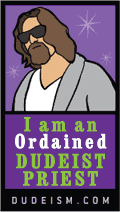Shelley Jackson hat's drauf. Sie hat einige Bücher, Hypertexte, Artikel und Notizen auf Servietten geschrieben, unter anderem Half Life und The Melancholy of Anatomy
und sie ist mit einer einfachen Idee weltweit bekannt geworden.
Die Idee ist: Einen Text schreiben ihn in einzelne Wörter zerlegen und diese Wörter an Freiwillige aus aller Welt schicken, die sie sich auf die Haut tätowieren lassen.
Das Ganze heißt passenderweise SKIN und inzwischen laufen schon mehr als 1.000 dieser lebendigen Wörter überall auf der Welt herum.
Man kann davon halten was man will, aber es scheint zu funktionieren. Und obwohl Shelley nach eigener Aussage über 9.000 Emails in ihrem posteingang hat, konnte ich mich natürlich nicht zurückhalten und hab ihr drei Fragen zum Thema schreiben gestellt: Wie man seinen eigenen Stil finden kann, wie man Leser findet und was das Ganze überhaupt soll.
Also, erst meine tollpatschigen Fragen, dann die intelligenten, eloquenten und überhaupt beneidenswert weisen Antworten von Shelley. ^__^
Lest und lernt...
1.
Style: I know that many young writers are full of enthusiasm. They read for example Tolkien for the first time and suddenly their imagination flicks on lights, never seen bevore. And so they start to write "like Tolkien" to keep that lights shining. But what's the best way to switch from "writing like ..." to writing one's own style? Or is that even desirable?
1. All writers should imitate like crazy. Freely, consciously, artfully, adventurously. The word “originality” is misleading. Books come from other books. There isn’t a single word in the dictionary that wasn’t used first by someone else; only the combinations are new.Imitate one person and you are a plagiarist. Imitate lots of people and you are a writer.But what if you’re only interested in Tolkien? Well, fortunately, however much you strive to be Tolkien, you will fail, because you are not Tolkien.In that failure lies the germ of something that nobody but you can write. That’s where your potential for greatness lies: in your excesses, your shortcomings, your peculiarities. Smooth off your rough spots and you will become perfectly average. Investigate them instead, and you might discover something. Well-meaning teachers talk about your “natural voice” as if all you had to do to write an original masterwork were to open your mouth.Ha! Spontaneity is nothing but habits so old that you have forgotten where they came from: zombie talk, self-plagiarism. Real writing is alive, uncertain, and completely unnatural. It never stops questioning itself.
2.
Readers: How can unknown writers get some fame? How can they get the attention of publishers? How do they get teir books on the shelves? Is it a good idea to join writing-clubs, literature-groups and online-forums? Or is it better to break some rules? Like proposing a book written on skin? ^__^ Or is it better to keep independent? Write for a small audience, offline or online?
2. Get interesting first! Then get famous. Sure, mediocre work can and does get published. But spare us! There are more than enough boring books. Once you begin to be interesting you can start submitting short stories to any journals you actually read.Employ some honest friends as test-readers. Writing clubs won’t necessarily teach you anything, but might help you feel somewhat more human than the average oyster, which is important, since oysters can’t write.You should write for an audience that loves what you love. Since you are not an oyster, this audience does exist. It might be huge, or it might be tiny—that’s out of your hands.There is no guaranteed way to become famous, so you should break rules or follow them for a better reason: because you want to see what will happen.
3.
Do those questions sum up? I think the central question is how one can get to a better understanding of oneself as a writer. What is a writer today and what should she or he try to do? Is it for the entertainment? Or to change the world? Or to change oneself? What is writing all about?
3. There are many different reasons to write. But I think most writers write just to write, without knowing whether or not it’s the right thing to do—the way a heart beats. The way your hands goes out to catch yourself when you fall.
----
Findest Du nicht gut? Schick mir Deine Kritik!
Findest Du gut? Schenk mir ein Buch!
Findest Du sehr gut? Dann










Keine Kommentare:
Kommentar veröffentlichen